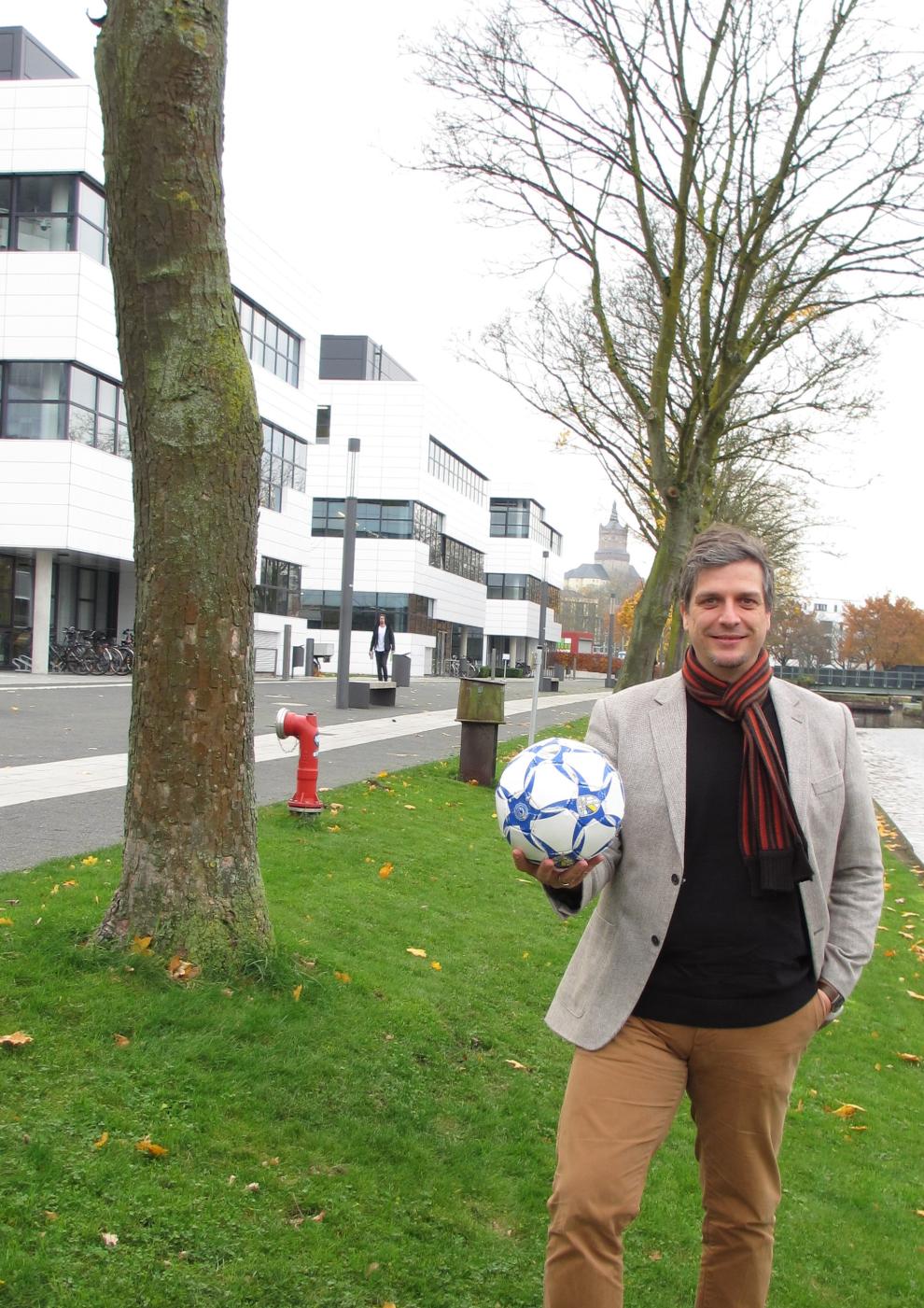DFG funds research project on football and identities (news)
The German Research Foundation DFG has granted funding for a cooperative research project on football and identities between Rhine-Waal University of Applied Sciences and Johannes Gutenberg University Mainz. The funding budget provided by the DFG amounts to a total of some € 450,000. Entitled "The Identity Effect of Europeanized Lifeworlds: Becoming European via Football", the fundamental research project is intended to support the jointly conducted empirical research on the relationship between the changing organizational forms of football and their relevant socio-political effects.
The two project managers, Professor Dr. Alexander Brand (Professor of Political Science with a focus on International Relations at Rhine-Waal University of Applied Sciences), and Professor Dr. Arne Niemann (Professor of International Relations at Johannes Gutenberg University Mainz), are very pleased with the financial support granted by the DFG. "This amount of research budget will be greatly beneficial to expanding our staff of qualified researchers," said Professor Brand. Building on that point, Professor Niemann added: "Systematically comparing the identity-forming effects of football fans’ lives across different European countries and clubs is, after all, a rather elaborate project."
Research in this area is driven by the growing interest of both political science and sociology in the supposedly nonpolitical activities and dynamics found in everyday life. This project in particular is aimed at determining whether, and to what extent, the increased Europeanization of football-related phenomena, including transfer markets for football players, competitions and football-regulating laws, has caused a subliminal change of awareness among fans and those generally interested in football. The objective is to close an existing research gap on European identity. So far, the fact that more than three quarters of football fans and a notable 61 percent of Europeans generally believe that football has a uniting effect on Europe, has been largely overlooked.
The project, scheduled to start in spring 2018, will be conducted in both Kleve and Mainz and run for 36 months.

